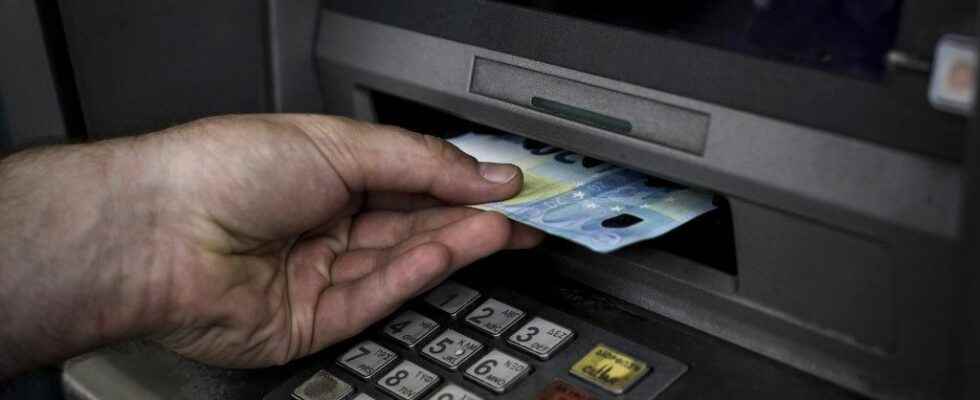Now is not the time for optimism. The growth of the French economy will show a marked slowdown in 2023, still affected by the energy crisis and inflation, before rebounding in the following two years, the Banque de France projected on Saturday 17 December. Despite a more than uncertain context with the shocks of Covid-19 and then the war in Ukraine, the economy is showing resilience: the institution is still counting on an economic cycle with three “Rs” – resilience, slowdown and recovery.
Thus, the increase in gross domestic product (GDP) will decelerate sharply, from 2.6% in 2022 to 0.3% in 2023, according to the “most probable” scenario retained for the bank’s macroeconomic projections for the next three years. French center. This decline will be followed by a rebound to 1.2% in 2024. This is less than the + 1.8% previously anticipated, because “the winter of 2023-2024 could still be a little complicated in the context of the crisis energy”, according to its managing director, Olivier Garnier. But the recovery will continue in 2025 with growth expected at 1.8%. At this horizon, unemployment, which would experience a “temporary” increase to more than 8% over the period, would begin to decline.
Faced with “a major external shock” with the war in Ukraine, the French economy “shows a certain resilience” and, once the air pocket of 2023 has passed, “will then adapt to this new situation”, said argue, François Villeroy de Galhau, Governor of the Banque de France, in an interview with Sunday newspaper. These forecasts must however be taken with tweezers given the “great uncertainties” weighing on the French and European economy, he noted.
“The peak of inflation in the first half of 2023”
In fact, the Banque de France remains cautious and publishes a range for the evolution of GDP for next year of between -0.3% and +0.8%. In any case, the institution is more pessimistic than the government, which is advancing 2.7% growth for this year and 1% in 2023. “We cannot rule out a recession, but if there is a recession, it will be limited and temporary,” said Olivier Garnier. In the longer term, over “2024-2028”, he added, “we are returning to growth that meets the potential growth of the French economy”, that is to say that which it can maintain. long-term.
If they will calm down somewhat, oil and gas prices will remain high and will continue to fuel inflation, as will food prices, which have also soared. According to Banque de France projections, “the peak should be reached during the first half of 2023. It should then decline steadily, returning to around 2% at the end of 2024 in the absence of a new energy shock”. The institution stresses that it takes “eighteen months to two years” for an anti-inflationary monetary policy to produce its effects.
To measure inflation, the Banque de France uses the harmonized consumer price index (HICP), which allows comparison between European countries and gives more importance to energy prices than the consumer price index. consumption used by INSEE and the French government. “Inflation under control will help restore confidence,” added François Villeroy de Galhau,
A public deficit that remains high
In an attempt to tame soaring prices and reach the 2% target, which guarantees some stability, the European Central Bank (ECB) on Thursday showed its determination to continue its rate hikes. It is counting on inflation at 6.3% next year in the euro zone – higher than previously anticipated – and growth lowered to 0.5%. Under these conditions, households will remain hit in the wallet, with a “limited drop” in their purchasing power in 2022-2023 which would then start rising again.
Above all, public finances will take a hit: according to the Banque de France, the public deficit would thus remain “high”, around 5% of GDP in 2022-2023 and 4.5% thereafter. The public debt ratio would be at 112% of GDP until 2025. “We therefore tend to solve each crisis by increasing the deficit and public debt”, comments in the JDD the head of the bank of France. The institution is categorical: “There cannot be a new ‘whatever the cost’ today: our public debt is too high and more and more expensive with interest rates going up. We have to get out emergency public measures, to adapt to a new economic situation. In a report published on Monday, November 21, the International Monetary Fund (IMF) tapped France on the fingers, urging it to put an end to “whatever the cost”.
